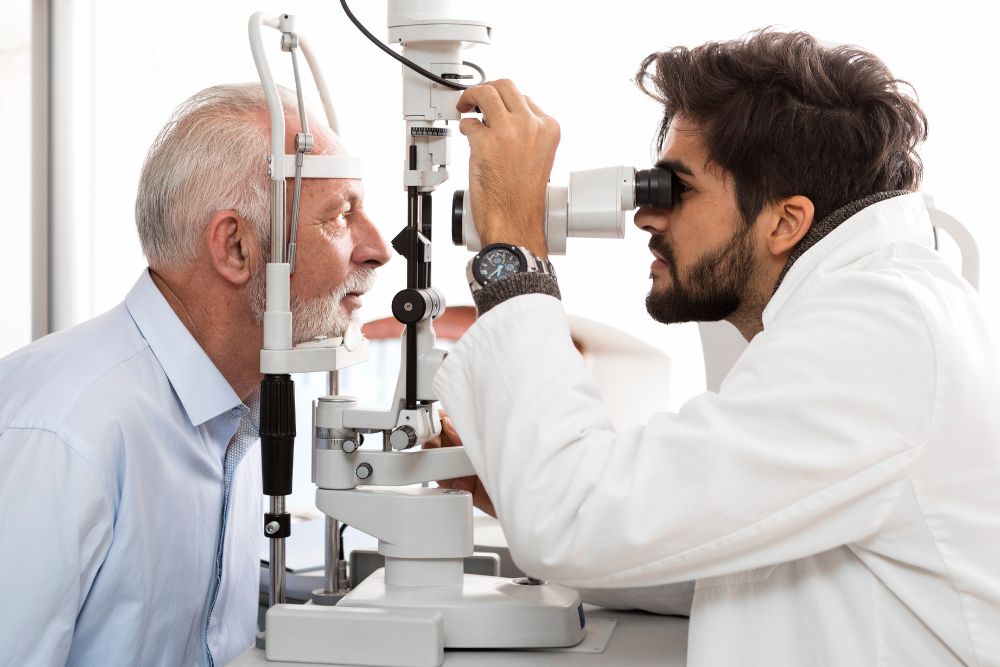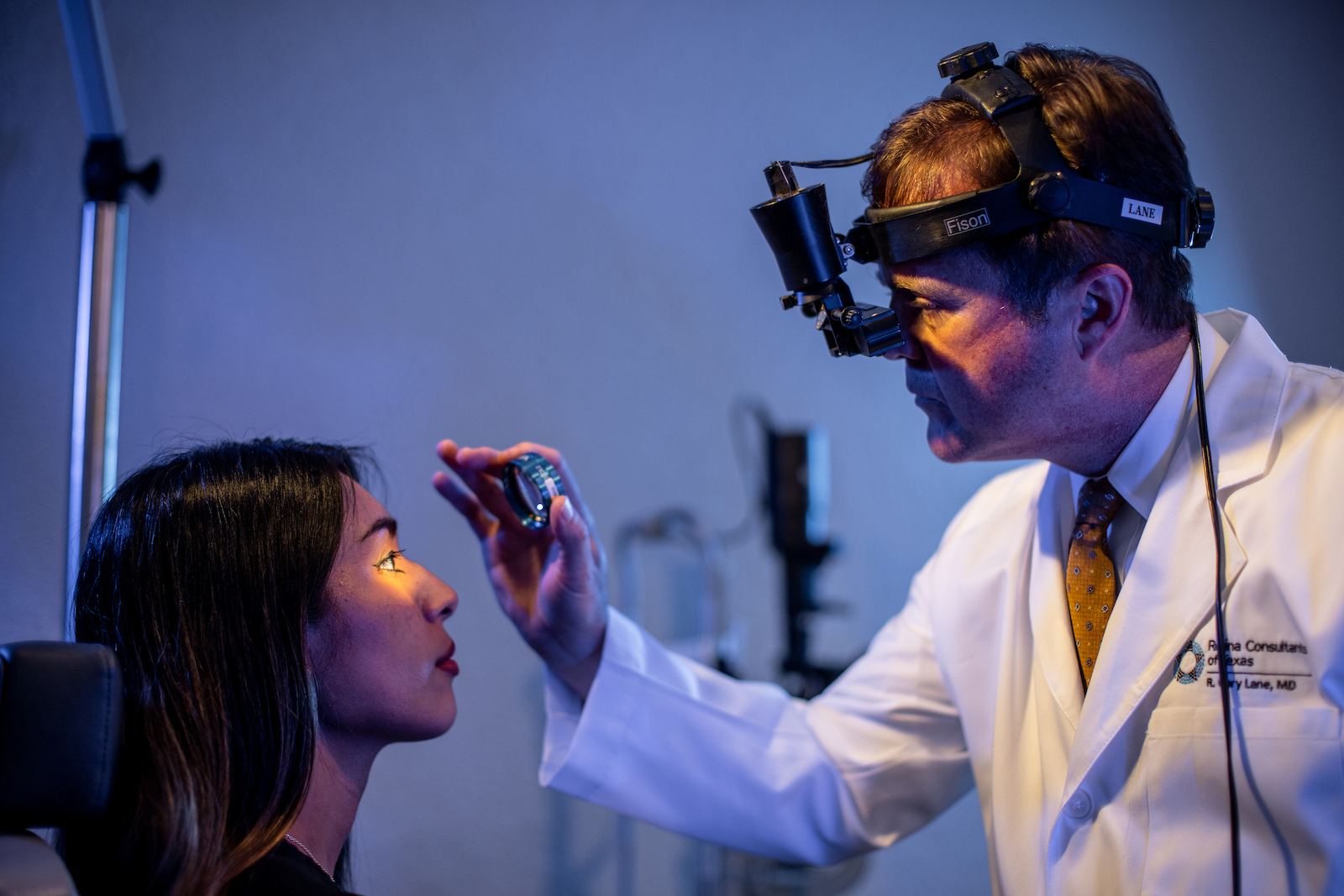Spotlight on Macular Edema: Causes, Symptoms, and Treatment Options

Macular edema is swelling in part of the retina that can cause vision loss. There are two types of this condition — diabetic and cystoid. Both cause swelling in the macula, but diabetic macular edema is a more serious condition that often requires treatment.
So, what causes macular edema and what are the most effective treatment options? Here’s what you need to know:
What Causes Macular Edema?
Macular edema occurs when blood vessels leak into a part of the retina called the macula. This causes swelling that can lead to blurry vision and, in more serious cases, vision loss. Different conditions can cause macular edema, including:
- Diabetic retinopathy: Diabetic retinopathy is an eye condition that causes vision loss in people with diabetes.
- Age-related macular degeneration (AMD): In a specific type of AMD called wet AMD, abnormal blood vessels in the macula leak fluid into or under the retina, causing swelling.
- Retinitis pigmentosa (RP): RP is a genetic disease that can cause swelling in the macula.
- Uveitis: Uveitis is inflammation that occurs in the eye as a result of the immune system attacking eye tissue. It can cause swelling in the eye, including the macula.
- Blocked veins in the retina (retinal vein occlusion): When veins in the retina are blocked, blood won't flow through. As a result, blood vessels can leak into the macula.
- Eye surgery: In some cases, people develop macular edema after having surgery to treat other eye-related conditions like cataracts.
- Certain medications: Some medicines, including those used for glaucoma, can cause macular edema.
Macular Edema Symptoms
The main symptom of macular edema is blurry vision that worsens over time. Other symptoms include distorted vision and blank spots. Sometimes, symptoms can be very mild, so it’s important to speak with a retina specialist if you notice any changes in your vision — regardless of how minimal.
Treatment Options for Macular Edema
There are various treatment options for macular edema, including:
- Injections: Anti-VEGF drugs can slow down or reverse macular edema and steroids can help with swelling. A retina specialist injects these medications directly into the eye.
- Eye drops: Your doctor may recommend a type of eye drop called nonsteroidal anti-inflammatories (NSAIDs). These drops are often used to prevent or treat macular edema caused by surgery.
- Laser treatment: Your doctor may also recommend laser treatment. This treatment option often works best in patients whose macular edema is caused by diabetes or another condition.
- Eye surgery: A type of surgical procedure called a vitrectomy may be done to treat macular edema. During a vitrectomy, a retina surgeon will make very small openings in the wall of the eye and remove most of the vitreous (gel-like fluid that fills your eye) with a suction tool.
Get Your Macular Edema Questions Answered
If you have any macular edema symptoms or concerns, it’s best to seek help from a retina specialist as soon as possible. At Retina Consultants of Texas, our expert team is here to answer your questions about macular edema and perform an eye exam to check for signs of the condition. For more information or to book an appointment, contact us today.






